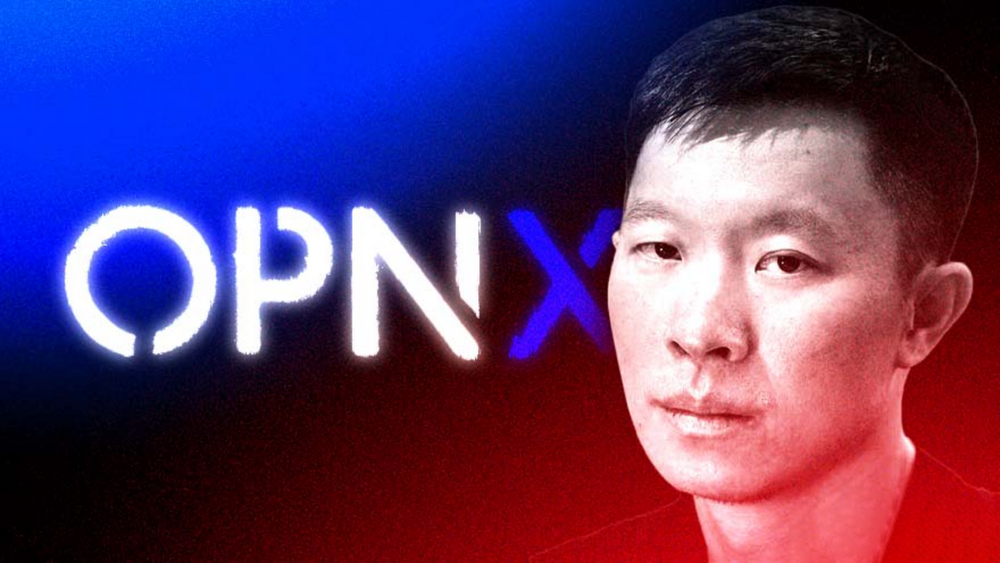Babbitt Column | From Central Bank to Digital Currency Exchange: A Typical Case of Banking Sinking
Author: Sun vice president
As the author mentioned in the previous article, the once-populated bottom-level public chain track ushered in a clear round of capacity clearing in this year's industry winter. Under this squeeze, practitioners, observers, and investors begin to divert to other tracks. One of the hot spots is the digital currency exchange that provides traffic services for the public chain. For a time, the logos of various exchanges in the industry were overwhelming. The practitioners walked around and went to a meeting. They would hear the self-introduction of “I am the CXO of the XX Exchange”. The degree of inflation in the title is almost the same as that in Russia. The government’s 5 million pieces of St. George’s Medal have a fight, and people can’t help but sigh: What sounds like a “exchange” on the tall, how can it spread to the point that “everyone can open”?
In fact, when we look at the history behind this, we will find that the story of the "silver (bank) certificate (voucher) unity exchange is not a history of the development of a financial information matching system, but another industry. – That is, the history of the bank's asset custody business has fallen sharply. The completeness of its sinking is simply a model for decentralization of an industry's ownership and a significant sinking of related wealth opportunities.
First, let everyone popularize a cold knowledge about the banking industry: Before the reform and opening up, there was only one bank in the society that assumed the responsibility of commercial banks, that is, the People’s Bank, that is, it assumed the policy-oriented banks and businesses of the whole society. Most of the functions of the sex bank, and most of the income and profits of the banking industry are firmly controlled in this top-level, government-enterprise institution.
- Chainalysis Asia Pacific cryptocurrency trend development report (October 2019)
- Privacy Backtracking and Investment: Oligarchs are significant and future value can be expected
- Libra responds to G7 full text: Improving opportunities for cross-border payments
However, after the 1980s, with the promotion of economic reforms, the banking industry’s right to operate (from a commercial point of view, the right to benefit) began to sink from the central bank’s top social organization, and it sank. Which level? Specifically, there are mainly some powerful state-owned groups, such as China Merchants Bank, Shanghai Pudong Development Bank, etc., which are familiar to people. This is the first time that the interests of the banking industry have sunk on the social pyramid, or it has been called “decentralization” in popular terms.
Friends who have some understanding of the banking industry should be able to see that this wave of banking industry's right to sink is not too big. The main beneficiaries are some state-owned enterprises under the government's supervision, or even some institutions that combine government and enterprise. That is to say, the redistribution of banking profits at this time actually occurs mainly between different government departments. This situation did not change until after 1996. As the strength of the private economy grew, some private companies began to be allowed to participate in the process of profit distribution in the banking industry: in 1996, the first private bank (that is, Minsheng Bank) ) is allowed to open for business and participate in the distribution of cakes in the banking industry. In the following 20 years, institutions that obtained banking licenses began to grow year by year, and quite a few of them were relatively commercialized private enterprises, rather than state-owned enterprises with relatively strong administrative colors, or semi-administrative and semi-commercial organs. The policy department seems that as long as the company's technical level is passed and there is a certain financial strength, it can get a banking license and go to the banking industry to share this piece of profit.
Seeing this, many readers will feel that the sinking of the banking industry has reached a limit? After all, to protect the depositor deposits, just look at the gun-loading team that is armed with bullets, you know that it is not for SMEs to play with, as far as ordinary self-employed households are concerned. Therefore, at that time, some industry observers believed that the banking industry’s chances of making money from the central bank sinking to the state-owned large enterprises and further sinking to private large enterprises are basically the same, and it is impossible to continue to sink, and SMEs and Ordinary individuals should be out of touch with this piece of profit.
However, they never imagined that although top-down economic reforms may not allow the banking industry to continue to sink, the bottom-up technological development and popularization can make relevant interests fall into SMEs. Even the hands of individual teams, and the specific performance is the digital currency exchange that people are very familiar with now.
As we all know, the digital currency exchange has the same name as the "Exchange", and the stock exchange seems to belong to the same type of institution on the surface, but in fact, it has not only the information platform of the trading platform, but also the bank. Asset preservation. For the trading platform, in the case of huge deposits. Not letting them take the money to do other things, it can be said that it is very inconsistent with the nature of the merchant. Therefore, the behavior of the exchange to mobilize user funds is very similar to the two major businesses of the bank's storage and loan.
Therefore, we can see that in the last one or two years, in order to attract users' funds, the exchanges can be said to be trying hard to solve all kinds of problems. From various excellent coins to launching various digital wealth management products, they actually want to To attract users to deposit funds into their cold wallets. As far as profitability is concerned, although the current digital assets do not have the same loan business as the legal currency, it seems that the asset custody of the exchange cannot be profitable according to the traditional routine, but the pos mine pool is popular, and the gold mines such as the dpos super node campaign. The existence of the company can still obtain a lot of benefits from the “quasi-bank” business of the exchange.
Therefore, although the debate surrounding the legal currency virtual banking licenses has continued in recent years, in fact, the sinking of banking rights under the help of technological development and popularization has actually begun in the digital currency field. . Compared with traditional banks, quasi-banking services such as digital exchanges have the following advantages: First, there is no need to set up infrastructure such as offline outlets and cash machines; second, the relevant technical architecture is not expensive, according to It can be won by a few hundred thousand yuan or even ten thousand yuan. Third, the relevant laws and regulations are still blank in terms of digital assets, and they can be opened without a license. These factors are brought together, which is the sharp decline of the banking business right. It is decentralized and is leading in all walks of life. So we can see that the bank position that was regarded as a fragrant society 10 years ago has already lost its glory, and the various CXO positions in the digital exchange have become a favorite job for young people.
[Note] There is a view that a "new business" that absorbs user deposits like a shared bicycle can be regarded as a form of expression in the banking industry. However, the entry threshold of such a "quasi-bank" is high, and whether the sharing economy depends on the deposit in the future. It remains to be seen, so it is not included here for the time being.
The story of the banking industry’s right from the top-level central bank of the society, all the way down to the hands of many small groups, actually supports the author’s previous point of view: that is, an important opportunity for ordinary people to achieve class crossing, It is necessary to seize the many business opportunities that have sunk from the social pyramid, and the driving force for the sinking of business opportunities has mainly originated from economic reforms decades ago. In the last decade or two, this is mainly the source. In the development and popularization of technology.
So, we can see that although in the past few years, many traditional economists have been very pessimistic that social classes have solidified and business opportunities are becoming less and less, but it turns out that in recent years they have been able to seize There are some people in the wealthy reshuffle opportunities and homeopathic people, such as the founders of many successful digital currency exchanges. The reason is: economists often think about problems from the perspective of economic reform. When they see the slowdown in economic reform, they feel that the commercial interests are sinking, and ordinary people turn their hopes, but they ignore the development of science and technology. It also plays a pivotal role in the sinking of commercial interests.
Looking at the ordinary people who have been rich overnight, a large number of them are industry observers who can sharply capture technological opportunities. This is why the society feels that young people are more likely to make big fortune, but strictly speaking, This matter has nothing to do with age. It is the hacking of the wealth code of this era that can recognize that it is eternal and small in the face of new knowledge. After all, it can always maintain a keen sense of smell and awe of learning.
We will continue to update Blocking; if you have any questions or suggestions, please contact us!
Was this article helpful?
93 out of 132 found this helpful
Related articles
- The cryptocurrency developer 108 will (1): the craftsmen who hide behind the code
- The four operations of the correct investment in the encryption market: how to minimize losses to make a profit?
- New Balance's latest sneakers are coming soon, plus the blockchain hidden gameplay do you know?
- Deputy Governor of the Bank of France: Encrypted assets have the potential to replace the traditional banking system, stabilizing the currency or will have a systemic impact
- If Solana succeeds, does it mean that all the shards are scams?
- Telegram insists that Gram is not a security, former SEC legal counsel: this is just a struggle
- The first full text! Libra Association calls out the G7: Libra can coexist harmoniously with the central bank's digital currency






